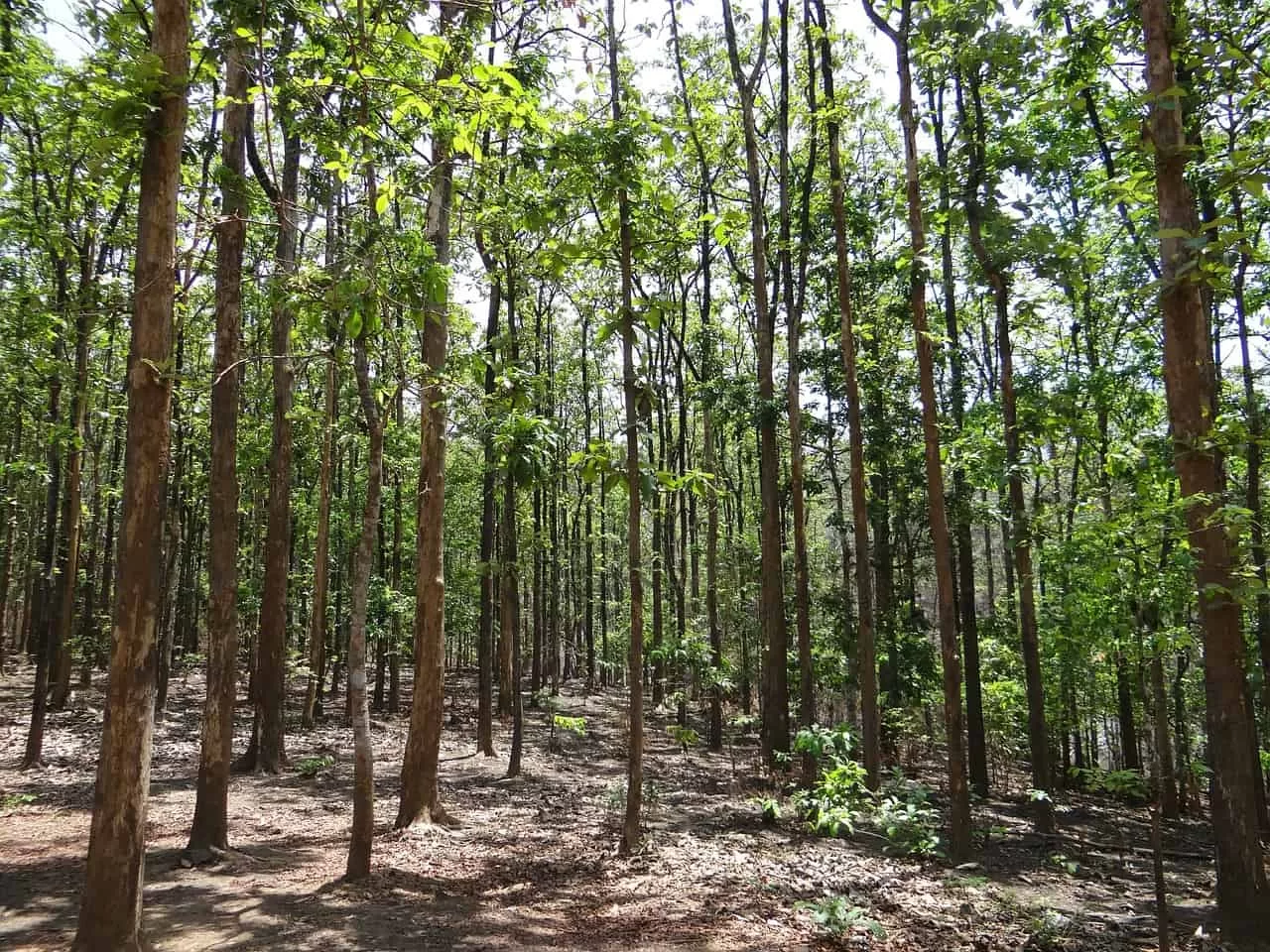Teak is an amazing hardwood with many amazing qualities. It is naturally resistant to fire, fungus, termites, and rot. It is also an absolutely beautiful and highly sought after wood. It is no wonder that this wood is in such high demand.
This high demand, however, has led to negative consequences, such as severe over logging. Due to this over logging, the natural, old-growth teak forests of the world are being cut down at an alarming rate. The governments of the countries that house the world’s old-growth teak forests have enacted laws, such as quotas and even outright bans, in an effort to limit the amount of teak that is logged. These laws have all gone into effect in recent years. Now that the bans are in place, illegal loggers are seeing the serious consequences that come with attempting to circumvent these bans.
Take, for instance, recent events in the Yavatmal district of India. A scuffle occurred in May of 2016 between foresters and a small gang of illegal teak smugglers. The gang was reported in the area as illegally felling teak trees. A confrontation ensued when foresters arrived, leaving three of the foresters injured. One member of the six-man gang was captured.
There are many more stories just like this one. Forestry officials and law enforcement all over Southeast Asia are working to enforce the bans on teak logging and transportation. They certainly have a lot of work to do, as stories of illegal loggers are sadly common.
Illegal Loggers of Teak
In May of 2016, three illegal loggers were discovered and captured near the town of Andhiyur in India. They were caught by forest patrollers with 50 kilograms (approximately 110 lbs.) of teak logs. The three were apprehended, brought before the district forest officer, and later remanded to judicial custody.
Another illegal logger was caught in July of 2015, in the Bhairapur village of India. He attempted to dupe officials by placing the logo of a local pickle company on his vehicle. His attempts were unsuccessful, and he was eventually found and apprehended.
In November of 2015, four people were arrested in the Koraput district of Odisha, India, for attempting to smuggle teak wood out of the Ramagiri Reserve Forest in two multi-utility vehicles.
On New Year’s Eve of 2015, a bus was pulled over on the Southern Expressway traveling from Katuwana to Kottawa in Sri Lanka. The bus was carrying teak wood. The bus driver and a helper were arrested for attempting to illegally transport the teak.

Finally, a major teak smuggling bust occurred in January of 2016 in the state of Kachin in Myanmar. Eighty Chinese citizens, as well as nineteen citizens of Myanmar, were arrested in what was one of the biggest busts of illegal teak smuggling to occur in recent memory. Several vehicles, as well as cash totalling 12,000 yuan, were also confiscated.
It isn’t surprising that there is a high level of illegal logging of teak in Southeast Asia; teak is an incredibly valuable hardwood, and it is in very high demand. With the demand and price of teak climbing ever higher, one can understand the motives of these illegal loggers, unsavory as they are.
How to stop Illegal Logging of Teak
What one can also understand, however, is the motive of the police and forestry officials who work every day to stop this illegal logging. The old-growth teak forests of Southeast Asia are getting smaller and smaller every year, and if the bans put in place now aren’t enforced properly, we may lose these forests completely. This is why it is so important to obtain teak that is logged in a sustainable manner.
All of these stories serve to highlight several key points. The first is that teak bans are here, and they are here to stay. This means that teak supplies will be shifting away from old-growth teak, and moving towards plantation teak that will soon dominate the market. Another key point to highlight is that teak logging in Southeast Asia is becoming a dangerous business. Even for the handful of companies that are able to operate legally in this region, the threats from illegal loggers and criminals are real. Plantation teak, however, has much fewer instances of illegal activities and violence connected to it.
As plantation teak comes into greater prominence in the global teak market, it will do so with a model of greater sustainability and safety than former, old-growth teak supply chains were able to produce. Global demand for teak is rising, and Southeast Asia, the world’s traditional supplier of teak, can no longer meet this demand. Over logging and government regulations are making this a reality. What will fill the ever-growing demand for teak, however, is plantation teak.
Plantation Teak
Every day, plantation teak is becoming a more conscionable and realistic supply source for teak around the world. It is a safe bet, both in terms of the physical security of the trees and the financial security of the investment. If you’re interested in getting involved in what will be the new wave of teak supply, use then make sure to check out this special presentation and do your part to stop the Illegal logging of teak by investing in a sustainable way/
In-demand, yet of dwindling supply in the marketplace, Teak is a remarkably valuable hardwood that is extremely durable, practical, and beautiful. To learn more about this opportunity watch this special presentation by Rachel Jensen and Mikkel Thorup.
If you’re considering traveling or moving abroad, be sure to explore your healthcare options. Visit International Citizens Insurance to learn more and get a free quote.










